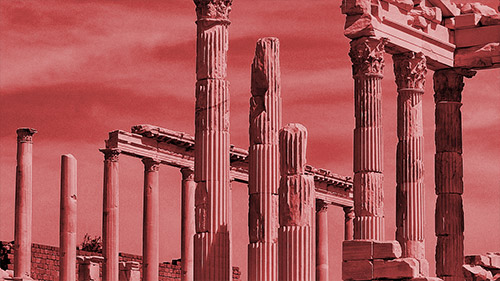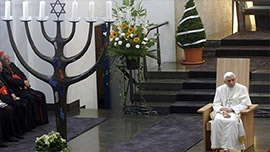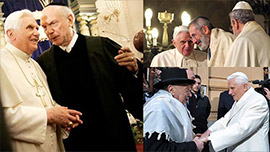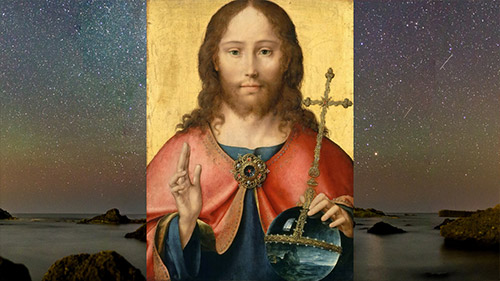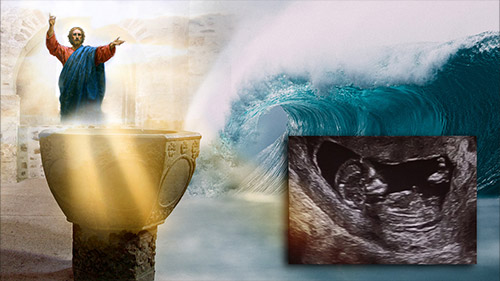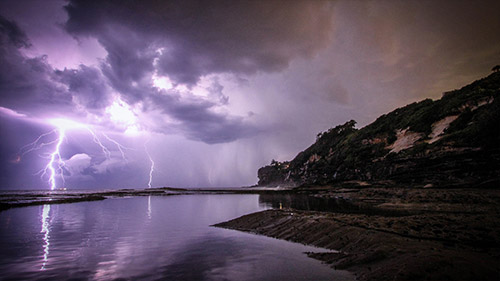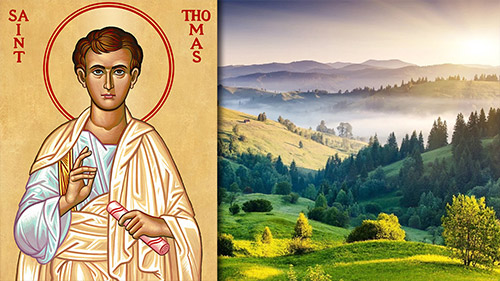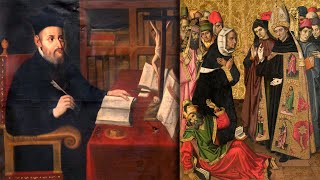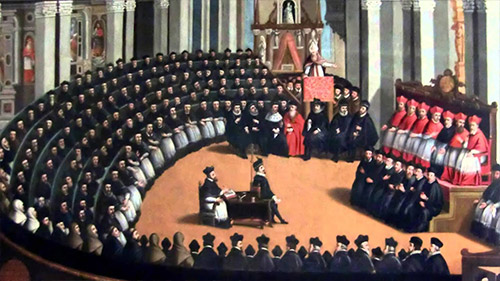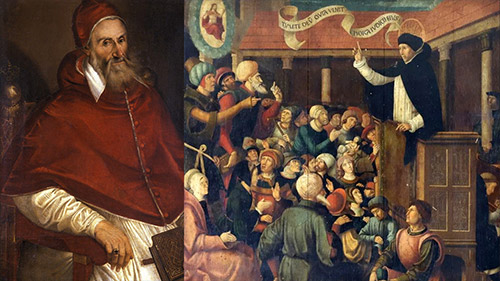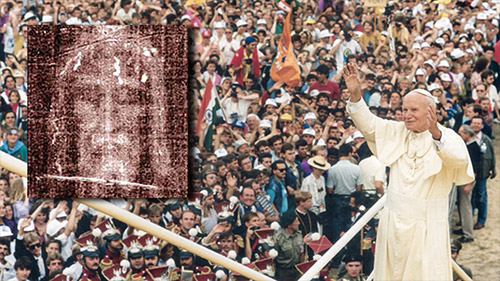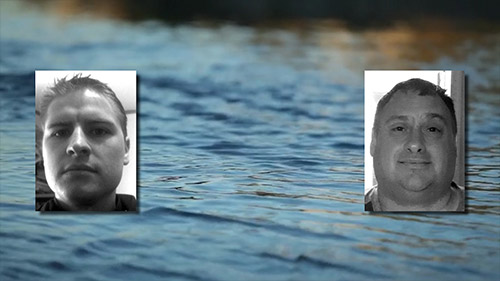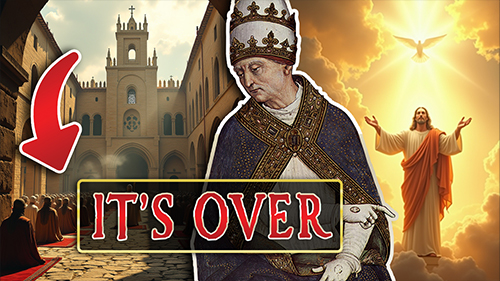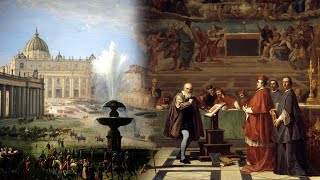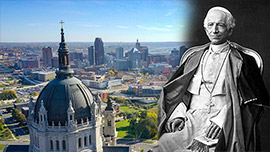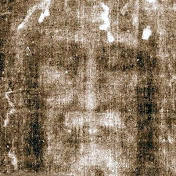 | vaticancatholic.com - English Channel |
Download Audio — File Size: 19.2 MB — Duration: 19:57 Faith & Doctrine | History | Spirituality & Prayer | The Gates Of Hell Shall Not Prevail | The True Popes Of The Catholic Church | Traditional Catholic Issues Bro. Peter Dimond In our material we’ve cited various popes to demonstrate the Catholic Church’s teaching that Catholics are forbidden to pray for deceased non-Catholics. In this article I want to present some important new quotes from Pope Gregory XVI which, to our knowledge, were never translated into English until our video was published. I also want to give some examples of how this teaching of the Catholic Church is contradicted and rejected in our day by many people who claim to be Catholic, but sadly are not. The first document (written in Latin) is an epistle of Pope Gregory XVI called Officium, addressed to a bishop in Bavaria on Feb. 16, 1842. A few months earlier, on Nov. 13, 1841, Queen Caroline of Baden of Bavaria, who was a Protestant, died. The bishop in the area regrettably allowed a funeral and prayers to be offered for this deceased non-Catholic queen. Even though the attending Protestant minsters were not allowed into the church, the fact that a bishop at that time allowed prayers and a funeral for someone who died outside the Catholic Church was disgraceful. It was a reflection of the theological breakdown that was occurring before Vatican II, particularly with regard to the defined dogma Outside The Catholic Church There Is No Salvation. The promotion of heresies against that dogma – not by the Magisterium, but in fallible sources and by many fallible theologians before Vatican II – is what led to the Vatican II apostasy. Firm belief in (and adherence to) the Church’s teaching on salvation and the necessity of baptism is what (to a large extent) distinguishes the true Catholics from those who lack a real supernatural faith that can please God in our day. Here’s what Pope Gregory XVI wrote to the bishop about this matter.
There are some very interesting statements in this letter. First, Pope Gregory XVI rebukes the bishop and reaffirms the Church’s teaching that people who die outside of communion with the Catholic Church cannot be honored with Catholic rites. This law goes back to the ancient Church. It is summed up as: “With those with whom we have not communicated while they were living we do not venture to communicate with while they are dead”. This was taught by Pope St. Leo the Great, Pope St. Gregory VII, and others.
This law was connected to why the unbaptized were forbidden Christian burial, and it was incorporated into medieval canon law. It doesn’t just forbid masses and public funerals for deceased non-Catholics. It forbids all prayers for deceased non-Catholics. Notice that Pope Gregory XVI rebuked the bishop specifically for telling the speaker to recommend the faithful to even pray for the deceased Protestant: “you even commanded that in his funeral eulogy for the deceased the sacred speaker should specifically commend her to the pious prayers of the faithful…” Moreover, as another example of this principle, which we cited in a previous video, Pope St. Gregory VII forbade prayers to be offered for anyone who died in the service an excommunicated prince (cited above). That applies to all who die outside of communion with the Church. The decretals of Pope Gregory IX also prohibited prayer for deceased heretics, as well as those who receive or favor heretics.
Likewise, in his bull Inter Cunctas, Pope Martin V taught that praying for any of the followers of the heretics Wycliffe, Hus or Jerome of Prague made one suspect of heresy.
The bull makes it clear that even praying privately for them was contrary to Catholic teaching.
This refutes many people in our day who argue that even if you aren’t permitted to offer a public mass for a deceased heretic or a deceased non-Catholic, you may pray privately for that person. No, that’s false and contrary to Catholic teaching. Moreover, it would be absurd for the Church to forbid all public prayers and public rites for deceased non-Catholics (because such rites would contradict the dogma Outside The Church There Is No Salvation), but then allow the faithful to rush home and pray in private for the non-Catholics (and contradict the dogma in their private lives). That’s nonsense. Gregory XVI also responds to a common objection people make on this matter. Many object: what if this heretical queen (who had been baptized) repented just before her death. We were not with her during her final moments. On that matter Pope Gregory XVI stated: “Nor has it any bearing on the matter whether in the final moments of her life she may have been enlightened to repentance by a hidden benefit of the merciful God. For, as a matter of fact, these more secret mysteries of divine grace in no way pertain to the exterior judgment of ecclesiastical authority; and this is why it has been forbidden by the ancient as well as the recent discipline of the Church for men who die in the external and notorious profession of heresies to be honored with Catholic rites.” Pope Gregory XVI teaches that unless they demonstrate by their external actions and profession that they embraced the true Catholic faith, they are considered to have died outside the Church. People may not pray for them. His reference to the ancient discipline of the Church is a reference to, among other things, Pope St. Gregory III’s letter on this matter, which we’ve also cited in various videos.
It’s noteworthy that in order to substantiate his statement that the Church’s ancient and recent discipline forbids Catholic rites for those who die in heresy, Pope Gregory XVI gives footnotes to the teaching of Pope Martin V in Inter Cunctas (cited above) and Pope St. Gregory III (cited above). By the way, it’s interesting how many Pope Gregorys have taught that Catholics are not permitted to pray for deceased non-Catholics or for those who die in clear grave sin. There’s teaching on this matter from Pope St. Gregory the Great, Pope St. Gregory III, Pope St. Gregory VII, the Decretals of Pope Gregory IX, and Pope Gregory XVI. There is also Pope Martin V. Here’s the passage from Pope St. Gregory the Great, which was also cited by St. Thomas Aquinas.
St. Thomas Aquinas, Summa Theologiae, Suppl. Q. 71, A. 5: “Gregory says (Moralia xxxiv): There is the same reason for not praying then (namely after the judgment day) for men condemned to everlasting fire, as there is now for not praying for the devil and his angels who are sentenced to eternal punishment, and for this reason the saints do not pray for dead unbelieving and wicked men, because, forsooth, knowing them to be already condemned to eternal punishment, they shrink from pleading for them by the merit of their prayers..." Other doctors of the Church, such as St. Francis Xavier, repeated the same Catholic teaching.
Pope Gregory XVI concludes his rebuke by pointing out that the bishop’s statement that the heretical Protestant queen went to Heaven is contrary to the dogma concerning the necessity of the Catholic faith to obtain salvation. With these facts of Catholic teaching in mind, consider the manner in which many people reacted to the death of Queen Elizabeth II in September of 2022. Elizabeth was sadly a Protestant and a notorious heretic like Caroline of Baden. In fact, Elizabeth was worse and more notorious than Caroline in many ways. Elizabeth was not only a member of a heretical sect, but she purported to be the head of the Church of England. Nevertheless, here’s a post from the heretics at so-called Catholic Answers stating that people should pray for the repose of her soul.
That’s contrary to Catholic teaching, as we’ve seen. It’s a reflection of their heretical position. They reject the dogma Outside The Church There Is No Salvation. By the way, some years ago ‘Catholic Answers’ put out a pamphlet that was supposed to be about the dogma Outside The Church There Is No Salvation. It did not cite any of the dogmatic definitions on the topic. They didn’t cite the dogmatic definitions because their attempts to explain the dogma away are blatantly contrary to what the dogma itself declares. They are not Catholic. All the groups or individuals we will be citing here (who prayed for Elizabeth after her death) deny the Church’s teaching that people must have the Catholic faith to be saved.
Here is the false traditionalist Taylor Marshall, who is not a true Catholic, contradicting Catholic teaching by praying for Elizabeth after her death.
Here is the false traditionalist priest William Jenkins (a John 3:5 mocker) repeatedly telling his listeners to pray for Elizabeth after her death. He thereby contradicts Catholic teaching and encourages others to sin.
That’s an example of how when people follow heretics who deny the Catholic Church’s teaching on salvation, they will get led astray. The false traditionalist heretic Mario Derksen (a John 3:5 mocker who endorses public heretics who teach the heresy that souls can be saved without the Catholic faith, including in pagan religions) has also argued that Catholics may pray for deceased non-Catholics and even offer mass privately for them. That is of course wrong and contrary to Catholic teaching, as we’ve shown. However, that serious error did find its way into the teaching of liberal and heretical theologians before Vatican II. It was even supported in a Catholic Encyclopedia article. That’s more evidence that the breakdown of the faith started before Vatican II. Those who don’t recognize that the apostasy started before Vatican II will not have a good understanding of the current situation. Some people think: “well I can just find any book published before 1955 with an imprimatur and it will necessarily be safe and orthodox.” No, that’s not the case. It’s not as if everyone who embraced the heresies at Vatican II showed up at Vatican II and suddenly fell into apostasy. In most cases, the men who went along with the heresies of Vatican II had already lost the faith in the years or decades preceding Vatican II. The denial of the Church’s teaching on salvation was main factor.
That’s totally outrageous, a mortal sin, and will be further contradicted by the next papal quote we will consider.
Not surprisingly, the apostate Antipope Francis announced that he’d be praying for the soul of the deceased Protestant queen. That message was promoted by EWTN, which is more evidence that EWTN does not have the faith.
The heretic Michael Voris and his heretical group even prayed for Ruth Bader Ginsburg after she died – a woman who was not only notoriously wicked and non-Catholic, but she didn’t even claim to believe in Jesus. Voris not only contradicted Catholic teaching and practice by engaging in this sinful behavior, but, in his blindness, he wrongly described this activity as what good Catholics do and what God demands people to do. It’s outrageous.
It’s also noteworthy that Pope Gregory XVI’s statement further demolishes the Vatican II Sect’s heresy that there are non-Catholic saints and martyrs. The position that there are non-Catholic saints and martyrs, which is a blatant denial of Catholic dogma, is officially taught by Vatican II, Paul VI, John Paul II, Benedict XVI and Francis. It directly contradicts many magisterial pronouncements, including the Church’s dogmatic teaching that “nobody can be saved, no matter how much he has given away in alms and even if he has shed blood in the name of Christ, unless he has persevered in the bosom and unity of the Catholic Church.” Since, as Gregory XVI points out, it has always been forbidden to even honor with Catholic rites those who die in the external profession of heresy (you must not offer a mass for them, you must not pray for them, etc.), how much more is it forbidden to publicly teach that people who die in the profession of heresy can be saints or martyrs. The teaching of Gregory XVI, which is simply a reiteration of what the Church has always taught on that matter, demonstrates again that the Vatican II antipopes are manifest heretics. They’ve taught their heresy that there are non-Catholic saints and martyrs dozens of times. That heresy by itself proves that they are not popes. Nevertheless, evil tools of Satan, such as the following modernist heretic, attempt to defend that blatant heresy of the antipopes without any success.
His argument is terrible and his statement is so obviously contrary to Catholic dogmatic teaching that it doesn’t even require a response. I will note, however, that Pope Gregory XVI refutes the aforementioned modernist heretic when he teaches that the issue of whether someone may have repented in their final moments has no bearing on the Church’s position that people who externally profess heresy cannot be honored with Catholic rites.
Pope Gregory did not say that someone can externally deny Catholic teaching and internally be Catholic. No. A person of course must actually reject heresy and embrace the Catholic faith to be Catholic. What he did say, rather, is that even when it’s unknown if someone actually changed or repented before death – that still does not justify Catholic prayers, rites, etc. for a person who, according to all the evidence we have externally, professed heresy. Hence, the absurd modernist argument we just quoted from the heretic, according to which people who reject Catholic teaching externally could internally and secretly be Catholics (and therefore it’s okay not only to teach that they can be saved, but for them to be considered martyrs and saints), is proven to be heretical nonsense. For even if you grant for the sake of argument the false modernist claim that one can externally reject the Catholic faith and secretly/internally be Catholic – a claim that’s patently false – that still would not justify honoring a person with Catholic rites or teaching that a person is a saint or a martyr, who, according to all external evidence, professed heresies. So, there’s absolutely no way to defend the blatant heresy of the Vatican II antipopes that there are non-Catholic saints and martyrs, which is found in Vatican II itself. Pope Gregory XVI addressed the same matter in another document called Litteras Accepimus, dated July 9, 1842. This was written to a representative of a Benedictine monastery in Bavaria. What happened was that as part of the arrangement for the monastery to be restored by the king, the leader of the monastery imprudently agreed to celebrate a funeral for all future kings and queens at their death. But if a king or a queen would die outside the Church, this would result in a contradiction with Catholic teaching. Gregory XVI wrote to the representative of the monastery telling him that what they did was wrong and that they were forbidden to carry out the agreement. He stated:
In this document Pope Gregory XVI addresses funerals for deceased non-Catholics (which of course included masses), and he again forbids them. He says this is based Catholic doctrine. We also saw from his other document and the other quotes we covered that not just funerals and masses, but all prayers (public or private) are forbidden for deceased non-Catholics. The facts that we’ve covered in this video prove again that our position on this matter is correct: Catholics are not permitted to pray for deceased non-Catholics. The reasoning behind this should obvious to those who actually believe in the Church’s teaching that the Catholic faith is necessary for salvation. However, these facts will be resisted by people who deny the Church’s teaching on this matter, and that is a huge problem today. In many ways, it’s what led to the Great Apostasy. It’s a reflection of what Our Lord said in Luke 18:8: when the son of man returns, will he find faith on earth. People need to embrace the traditional Catholic faith, as our material explains. Copyright © 2023 Most Holy Family Monastery |
No Latin Mass Or Prayers For Dead Non-Catholics – Papal Teaching
March 11, 2023
SHOW MORE


